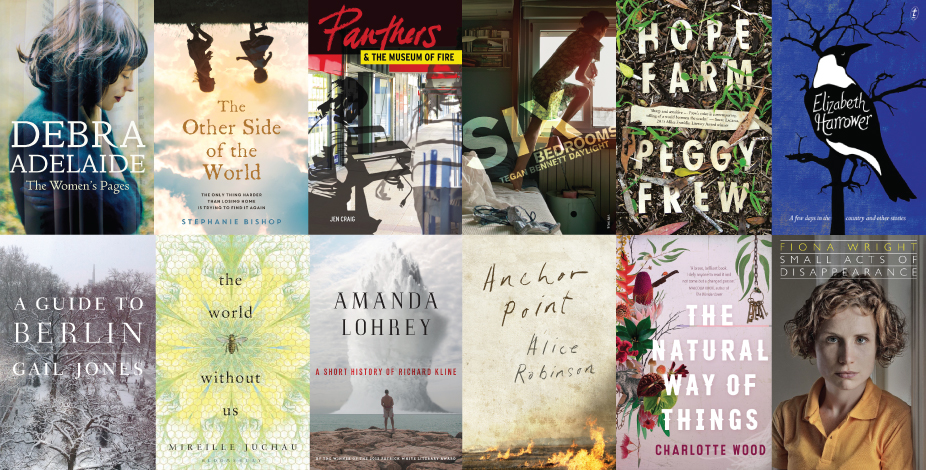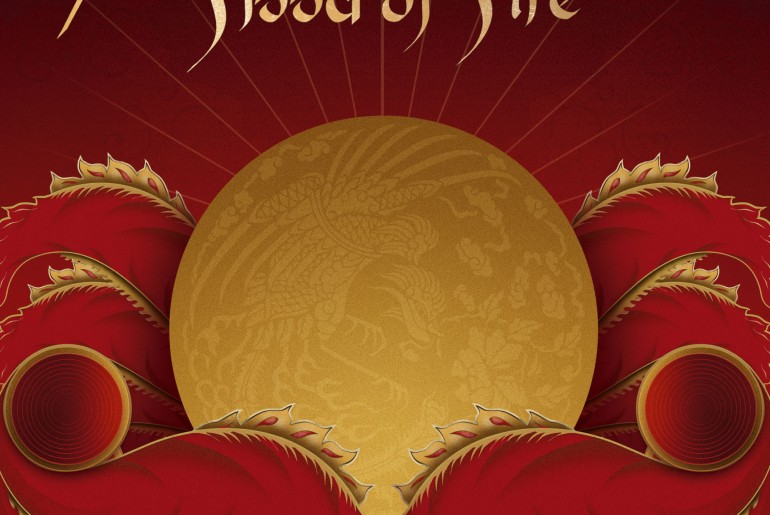Anyone who has walked England’s moors, particularly those in the northern part of the country, knows their mesmerising mix of majestic beauty, layered cultural heritage and frequent fickle extremes in weather. They are both breathtakingly alluring to tens of millions of visitors and lethal to the unwary and unprepared. In…
Review: Understated menace magnifies the tension in Alan Furst’s A Hero in France
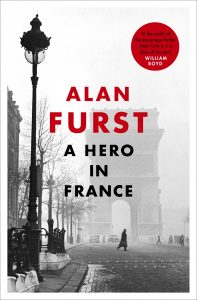 Alan Furst has carved out a substantial niche for himself with his meticulously researched thrillers set in Europe during the 1930s and 1940s. His latest, A Hero in France, opens in March 1941, ten months after the French premier Marshal Petain’s infamous capitulation and the arrival of the German occupying force.
Alan Furst has carved out a substantial niche for himself with his meticulously researched thrillers set in Europe during the 1930s and 1940s. His latest, A Hero in France, opens in March 1941, ten months after the French premier Marshal Petain’s infamous capitulation and the arrival of the German occupying force.
The hero of the title, code-named Mathieu, lives a double-life, his identity never revealed, even to his lover, Joëlle. He heads a cell of the French Resistance tasked with getting downed RAF airmen out of France and back to England, not just for the propaganda value but also because of the appallingly high attrition rate of pilots. The book spans five critical months in the work of the cell and its web of supporters, supporting network, operating under an increasingly suffocating blanket of fear, suspicion and distrust as the German grip on Paris, and France, tightens.
Fiction dominates Stella Prize long list 2016 for great books written by female Australian author
Novels and collections of short stories including work by Elizabeth Harrower, Charlotte Wood and Amanda Lohrey dominate the long list $50,000 annual Stella Prize which celebrates great books, fiction and non-fiction, by female Australian authors. The only non-fiction book to make the list is Small Acts of Disappearance : Essays on Hunger by Fiona Wright. The full long list is:
Review: The Secret Chord by Geraldine Brooks is a rich reinterpretation of the life of King David
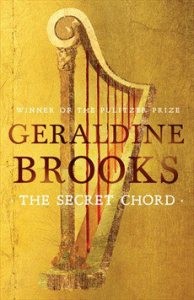 The awarding of the Order of Australia to Geraldine Brooks as part of the national Australia Day celebrations this week was a fitting start to the new year for one of the country’s internationally celebrated authors. She received the OA not just for her writing but also her work as Ambassador for the Indigenous Literacy Foundation which aims to put books in the hands of indigenous children in remote areas.
The awarding of the Order of Australia to Geraldine Brooks as part of the national Australia Day celebrations this week was a fitting start to the new year for one of the country’s internationally celebrated authors. She received the OA not just for her writing but also her work as Ambassador for the Indigenous Literacy Foundation which aims to put books in the hands of indigenous children in remote areas.
The comes as Brooks enjoys great critical acclaim for her latest book The Secret Chord, a rich reinterpretation of the life of one of the most famous historical characters. If King David were alive today he would be a superstar of the political world. A slayer of giants (real and metaphorical), the second King of the Jews. Admired and feared. A unifier and a divisive force. Modest yet carelessly arrogant. Sympathetic yet cruel. A character who looms large over the foundation period of religious history.
Alaska’s wild environment is both friend and predator in Rosemary Lupton’s The Quality of Silence
In skilled hands, the environment can become an important character in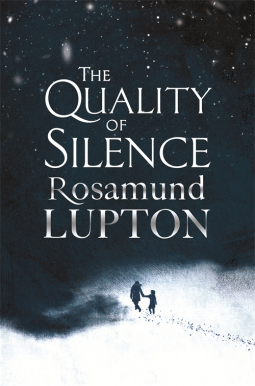 books. Particularly thrillers. Alaska, the real star of Rosamund Lupton‘s new novel The Quality of Silence, is staggeringly beautiful but a fickle friend, both protector and potential killer. A place that can “freeze your tears”. Yasmin and her 10-year old daughter Ruby arrive at Fairbanks Airport in the far north of Alaska. She is expecting a slightly tense reunion with her husband Matt a wildlife photographer. He has been away working in the remote community of Anaktue where Yasmin believes he has been having an affair with a local woman. Instead, they are met by the police who tell them that the whole settlement has been engulfed by an explosion, presumably ruptured gas tanks, and subsequent fire. There are no survivors.
books. Particularly thrillers. Alaska, the real star of Rosamund Lupton‘s new novel The Quality of Silence, is staggeringly beautiful but a fickle friend, both protector and potential killer. A place that can “freeze your tears”. Yasmin and her 10-year old daughter Ruby arrive at Fairbanks Airport in the far north of Alaska. She is expecting a slightly tense reunion with her husband Matt a wildlife photographer. He has been away working in the remote community of Anaktue where Yasmin believes he has been having an affair with a local woman. Instead, they are met by the police who tell them that the whole settlement has been engulfed by an explosion, presumably ruptured gas tanks, and subsequent fire. There are no survivors.
Much of the action is seen through the eyes of Ruby. Profoundly deaf,
Review of The Song Collector by Natascha Solomons
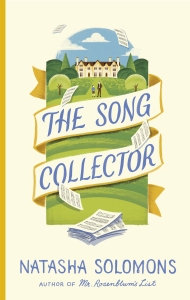 Harry Fox Talbot has become famous recasting local folk songs to create spectacular new classical musical works. But emotionally crippled by the loss of his wife, he exists in miserable solitude in Hartgrove Hall, the Dorset home in which he and his brothers had grown up. One day, desperately trying to entertain his troublesome four-year-old grandson, Robin, he opens his piano and the boy reveals an extraordinary inherent understanding of the complexity of music, and a prodigy’s dexterity in playing. Teaching Robin breathes new life into Harry, reconnecting him with the world he had abandoned and forcing him to face long passed demons.
Harry Fox Talbot has become famous recasting local folk songs to create spectacular new classical musical works. But emotionally crippled by the loss of his wife, he exists in miserable solitude in Hartgrove Hall, the Dorset home in which he and his brothers had grown up. One day, desperately trying to entertain his troublesome four-year-old grandson, Robin, he opens his piano and the boy reveals an extraordinary inherent understanding of the complexity of music, and a prodigy’s dexterity in playing. Teaching Robin breathes new life into Harry, reconnecting him with the world he had abandoned and forcing him to face long passed demons.
Solomon transports the reader back and forth in time between the present and the post-war years when the three Fox-Talbot brothers had first returned to Hartgrove Hall ”submerged in lonely and silent anxiety at the prospect of our reunion.” They find the historic house, which had been
Rarely has history been so compelling as in Amitav Ghosh’s new book Flood of Fire
 Flood of Fire, the final part of Amitav Ghosh’s Ibis trilogy is set between 1839 and 1841 and it would have been easy to have got the reader lost in the rich historical events that were unfolding during that period; the growing tensions between China and British-ruled India over the opium trade that eventually triggered war, the eventual seizure of Hong Kong and what Beijing saw as its humiliating defeat.
Flood of Fire, the final part of Amitav Ghosh’s Ibis trilogy is set between 1839 and 1841 and it would have been easy to have got the reader lost in the rich historical events that were unfolding during that period; the growing tensions between China and British-ruled India over the opium trade that eventually triggered war, the eventual seizure of Hong Kong and what Beijing saw as its humiliating defeat.
But Ghosh’s literary world is populated by such a gallery of diverse and vivid characters that it is they who capture the reader. Some will be remembered from his first two books, Sea of Poppies about opium production and River of Smoke about the opium ship Anahita travelling to Canton in China. However, while Flood of Fire provides continuity it is equally enthralling as a stand-alone book.
The story unfolds through the lives of three main characters: Zachary Reid,
Shortlist for Australia’s NSW Premier’s Literary Award announced
Peter Carey, Joan London, David Malouf and Favel Parrett are among the ten authors who are in the running for the top prize in the New South Wales Premier’s Literary Awards in Australia. The full list is: Amnesia by Peter Carey (Hamish Hamilton) Golden Boys by Sonya Harnett (Hamish Hamilton)…
Stella Prize finalists reveal the inspiration behind their books
Joan London (right) wanted to write about the 1950s, “the time of her childhood.” Emily Biffo wanted to write about a group of people attempting to separate themselves from mainstream culture. And Elen Van Neervan wanted to ask questions about Indigenous governance in Australia, and issues like land rights, identity and love. Each of the six finalists for the Stella Prize for Fiction, the winner of which will be announced next week, has explained the inspiration behind their shortlisted books in a series of revealing interviews with The Guardian.
wanted to write about a group of people attempting to separate themselves from mainstream culture. And Elen Van Neervan wanted to ask questions about Indigenous governance in Australia, and issues like land rights, identity and love. Each of the six finalists for the Stella Prize for Fiction, the winner of which will be announced next week, has explained the inspiration behind their shortlisted books in a series of revealing interviews with The Guardian.
Maxine Beneba Clark whose collection of short stories Foreign Soil is published by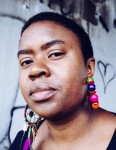 Hachette, said she was looking at “people trying to find a place for themselves in the world – about the search for a true place to call home, about the things we gain when we migrate, and the all-consuming heartache of our leaving, even as we find the very things we’re looking for”.
Hachette, said she was looking at “people trying to find a place for themselves in the world – about the search for a true place to call home, about the things we gain when we migrate, and the all-consuming heartache of our leaving, even as we find the very things we’re looking for”.
Stella Prize shortlists six of the best in writing by Australian women
Journalist and author Christine Keneally is the only non-fiction author to make it onto the shortlist of Australia’s prestigious The Stella Prize for women writers announced today. Her The Invisible History of the Human Race looks at the role of DNA in shaping us, and our world.
The other five finalists are:
- Joan London’s The Golden Age (Random House)
- Emily Bitto’s The Strays (Affirm Press)
- Ellen van Neerven’s Heat and Light (UQP) ,
- Sofie Laguna’s The Eye of the Sheep (Allen & Unwin)
- Maxine Beneba Clarke’s Foreign Soil (Hachette)
In announcing the shortlist, Stella Prize executive director Aviva Tuffield said: “These six remarkable books explore themes of identity, family, displacement and belonging, with distinctly Australian resonances.’’ The winner will be announced on Tuesday 21 April. Previous recipients of the prize are Carrie Tiffany’s Mateship with Birds (2013) and Clare Wright for The Forgotten Rebels of Eureka (2014).
Below is the Stella Award’s synopsis of each of the finalists.
